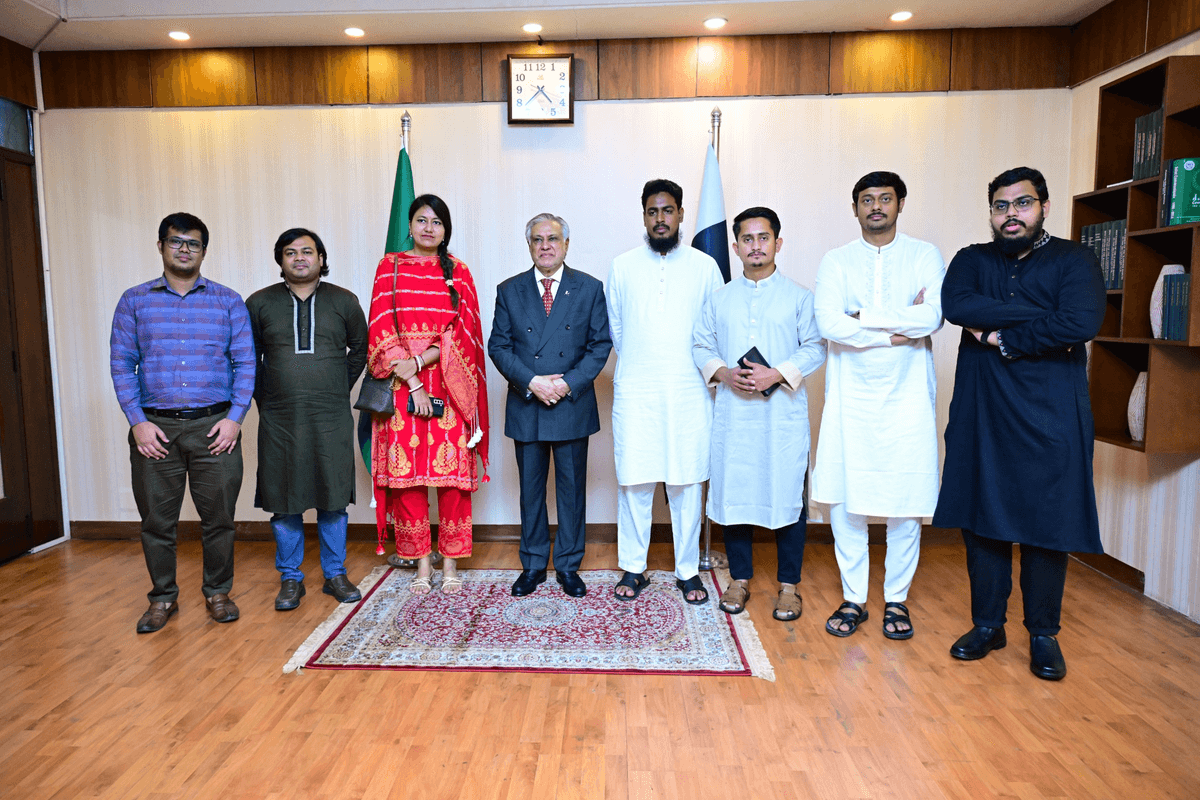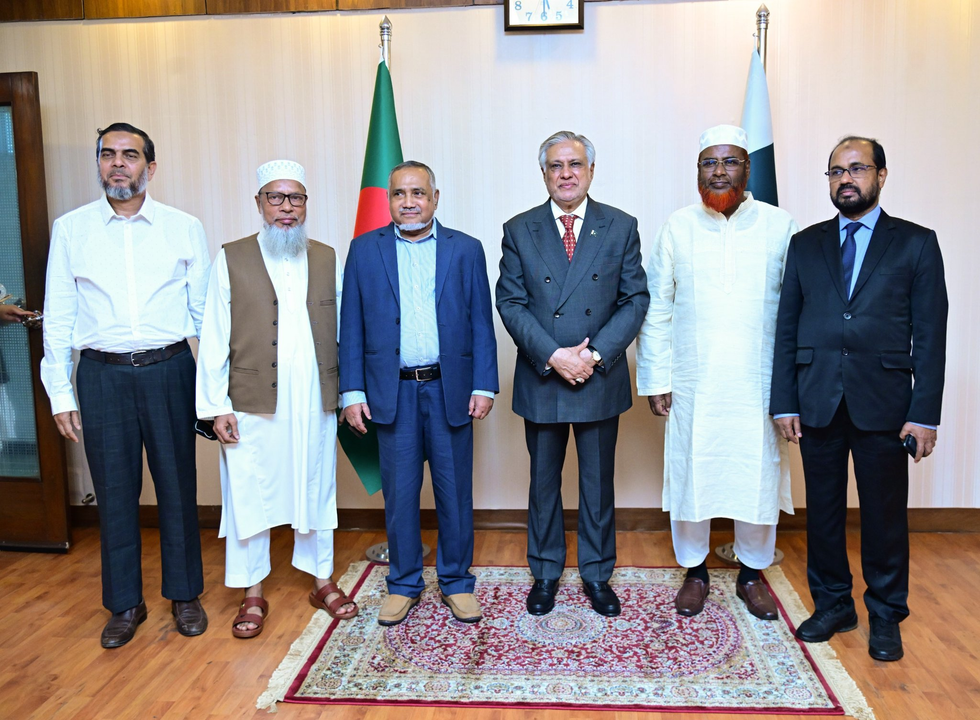Pakistan FM calls for stronger youth and cultural ties in landmark Bangladesh visit
Dar meets Jamaat-e-Islami, NCP, and BNP delegations to discuss cultural exchanges; FO hails visit as a 'significant milestone'
News Desk
The News Desk provides timely and factual coverage of national and international events, with an emphasis on accuracy and clarity.

National Citizen Party delegation meets Foreign Minister Ishaq Dar in Dhaka on Saturday.
Courtesy: Foreign Office
Pakistan’s Deputy Prime Minister and Foreign Minister Ishaq Dar called for deeper engagement between the youth of Pakistan and Bangladesh as he began a "landmark" two-day visit to Dhaka on Saturday - the first by a Pakistani foreign minister in 13 years - signaling a cautious but notable thaw in relations between the two South Asian nations.
Dar arrived in Dhaka at the invitation of the Bangladeshi government, where he was received by senior officials of both countries at Hazrat Shahjalal International Airport.
The Foreign Office called the August 23-24 visit a “significant milestone” in bilateral relations, highlighting its importance amid renewed diplomatic engagement after decades of strained ties.
The visit comes after years of frosty relations between Islamabad and Dhaka. Ties began to warm only after the ouster of Prime Minister Sheikh Hasina Wajid in August last year, which removed a longstanding source of tension.
Thaw in bilateral ties
Since then, both sides have signaled a willingness to move forward, resuming sea trade last year and expanding government-to-government commerce earlier this year.
Soon after his arrival, Dar met with a delegation of the National Citizen Party (NCP), led by Akhtar Hossain. He lauded the NCP leadership’s vision for reform and social justice and stressed the importance of greater interaction between Pakistani and Bangladeshi youth.
The NCP delegation, for its part, briefed him on nationwide political mobilization in 2024. Both sides also discussed the potential for enhanced cultural exchanges in the near future.
Despite these positive developments, relations remain overshadowed by the legacy of the 1971 war, which led to the creation of an independent Bangladesh and left enduring scars on bilateral ties.
In Dhaka, calls for a formal apology from Islamabad persist, complicating efforts at full reconciliation.
Dar meets BNP and Jamaat-e-Islami delegations
Meanwhile, Dar held separate meetings with delegations from the Bangladesh Nationalist Party (BNP) and Bangladesh Jamaat-e-Islami (JI), focusing on strengthening Pakistan-Bangladesh relations and regional cooperation.
In the first meeting, Dar met the BNP delegation led by Secretary General Mirza Fakhrul Islam Alamgir in a cordial setting, the Foreign Office said. He reaffirmed Pakistan’s commitment to enhancing bilateral ties based on mutual respect and shared benefit.
Discussions highlighted regional cooperation, with Bangladesh’s foundational role in establishing SAARC acknowledged, and leaders reflecting on past high-level interactions between the two countries.
Separately, Dar met a delegation of Bangladesh Jamaat-e-Islami, led by Naib Ameer Dr. Syed Abdullah Mohammed Taher. The meeting focused on ways to further Pakistan-Bangladesh relations and recent regional developments.

The FM lauded the "courage and steadfastness" of the Jamaat leaders and activists in facing hardships and difficulties, emphasizing the importance of constructive engagement in fostering bilateral understanding.
Regional implications
Dar’s visit is also unfolding against a tense regional backdrop. Bangladesh’s relations with India - once its closest ally - have deteriorated since Hasina’s ouster, while Pakistan’s own relations with New Delhi remain fraught, including a brief clash in May.
Hasina, long seen as India’s key partner, fled to New Delhi after her government’s downfall and now faces charges of crimes against humanity in Bangladesh - a development that has further strained Dhaka’s ties with New Delhi.
“Bangladesh had been one of India’s closest partners in its neighborhood, and now it is flirting with India’s chief adversary,” said Michael Kugelman, a U.S.-based South Asia analyst.
Analysts say the post-Hasina political realignment could allow Dhaka to diversify its alliances and give Islamabad an opening to regain influence in the region.
“The toppling of Hasina was a strategic setback for India, and the improved relations between Bangladesh and Pakistan are a consequence of her ouster,” noted Thomas Kean of the International Crisis Group.
Dar’s trip, observers suggest, may mark the start of a new chapter in Pakistan-Bangladesh relations - one shaped as much by their shared history as by shifting geopolitical realities in South Asia.
With additional input from AFP







Comments
See what people are discussing